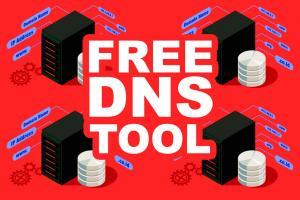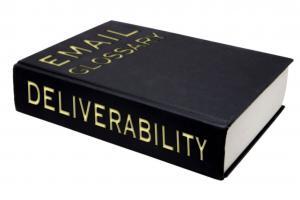RFC6376
RFC6376
- April 21, 2021
- Posted by: Nicola Selenu

DomainKeys Identified Mail (DKIM) Signatures
DomainKeys Identified Mail (DKIM) permits a person, role, or organization that owns the signing domain to claim some responsibility for a message by associating the domain with the message. This can be an author’s organization, an operational relay, or one of their agents. DKIM separates the question of the identity of the Signer of the message from the purported author of the message. Assertion of responsibility is validated through a cryptographic signature and by querying the Signer’s domain directly to retrieve the appropriate public key. Message transit from author to recipient is through relays that typically make no substantive change to the message content and thus preserve the DKIM signature.
This memo obsoletes RFC 4871 and RFC 5672.
Author:Nicola Selenu
Email Service Providers Handbook
The most comprehensive “Handbook of Email Service Providers“!
SPAMASSASSIN RULES
All SpamAssassin rules in one place, EXPLAINED!
SMTP COMMANDS
& REPLY CODES
All SMTP/ESMTP commands and reply codes in one place, EXPLAINED!
Free DNS Tool
Check the DNS records of your domain with our free DNS tool.
Deliverability Glossary
The most comprehensive Email Deliverability and Marketing Glossary!
- Term: DomainKeys Identified Mail (DKIM)
- Term: Cryptographic Signature
- Term: Recipient
- Term: Request For Comments (RFC)
- Term: Email Service Provider (ESP)
- Term: SpamAssassin
- Term: Simple Mail Transfer Protocol (SMTP)
- Term: Accelerated Mobile Pages (AMP)
- Term: Extended Simple Mail Transfer Protocol (ESMTP)
- Term: Domain Name System (DNS)
- Term: Deliverability
RFC6376
DomainKeys Identified Mail (DKIM) Signatures
DomainKeys Identified Mail (DKIM) permits a person, role, or organization that owns the signing domain to claim some responsibility for a message by associating the domain with the message. This can be an author’s organization, an operational relay, or one of their agents. DKIM separates the question of the identity of the Signer of the message from the purported author of the message. Assertion of responsibility is validated through a cryptographic signature and by querying the Signer’s domain directly to retrieve the appropriate public key. Message transit from author to recipient is through relays that typically make no substantive change to the message content and thus preserve the DKIM signature.
This memo obsoletes RFC 4871 and RFC 5672.
- Term: DomainKeys Identified Mail (DKIM)
- Term: Cryptographic Signature
- Term: Recipient
- Term: Request For Comments (RFC)
- Term: Email Service Provider (ESP)
- Term: SpamAssassin
- Term: Simple Mail Transfer Protocol (SMTP)
- Term: Accelerated Mobile Pages (AMP)
- Term: Extended Simple Mail Transfer Protocol (ESMTP)
- Term: Domain Name System (DNS)
- Term: Deliverability
Author:Nicola Selenu
Email Service Providers Handbook
The most comprehensive “Handbook of Email Service Providers“!
SPAMASSASSIN RULES
All SpamAssassin rules in one place, EXPLAINED!
SMTP COMMANDS
& REPLY CODES
All SMTP/ESMTP commands and reply codes in one place, EXPLAINED!
Free DNS Tool
Check the DNS records of your domain with our free DNS tool.
Deliverability Glossary
The most comprehensive Email Deliverability and Marketing Glossary!
- Term: DomainKeys Identified Mail (DKIM)
- Term: Cryptographic Signature
- Term: Recipient
- Term: Request For Comments (RFC)
- Term: Email Service Provider (ESP)
- Term: SpamAssassin
- Term: Simple Mail Transfer Protocol (SMTP)
- Term: Accelerated Mobile Pages (AMP)
- Term: Extended Simple Mail Transfer Protocol (ESMTP)
- Term: Domain Name System (DNS)
- Term: Deliverability






